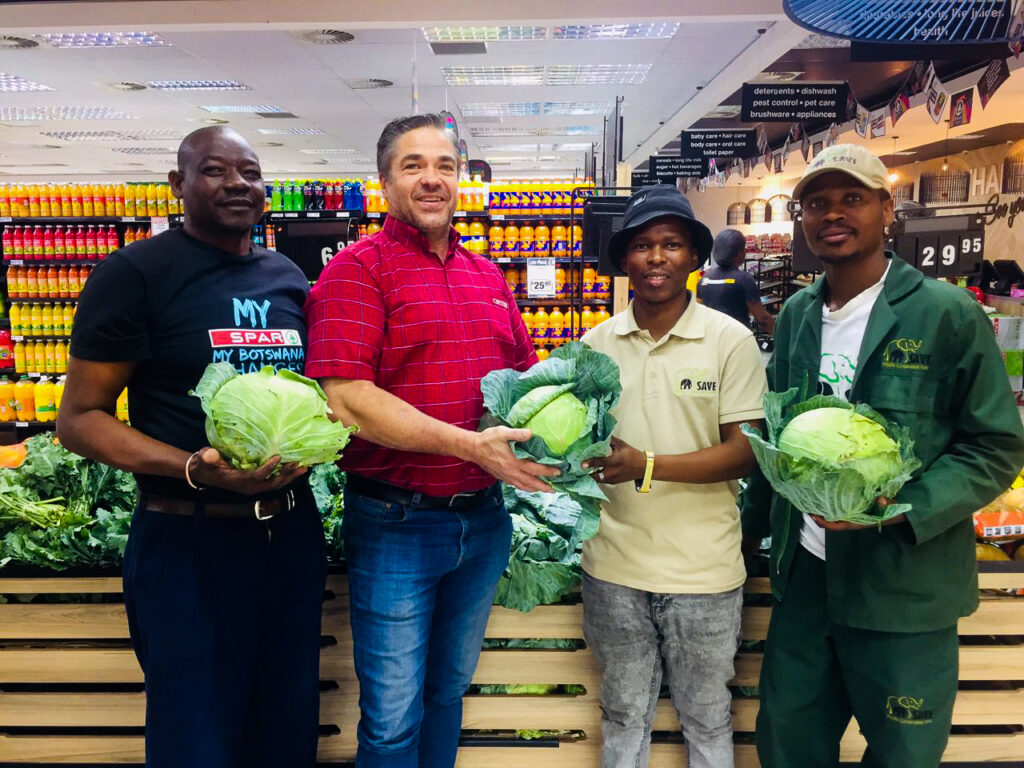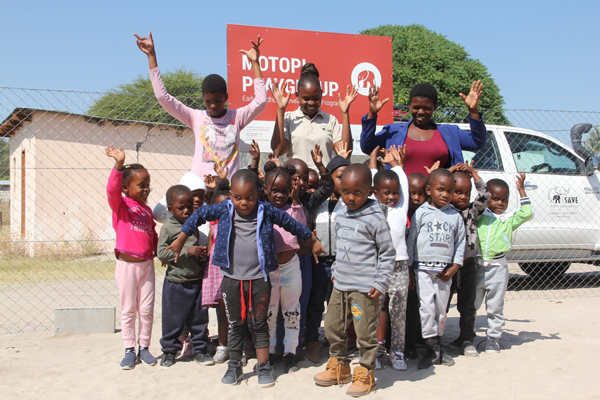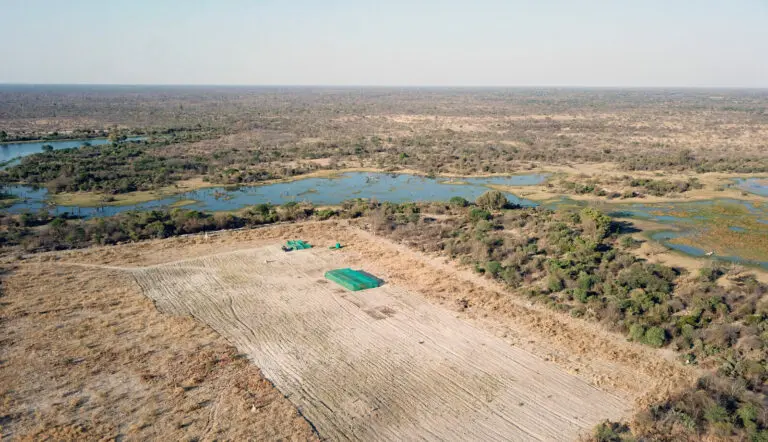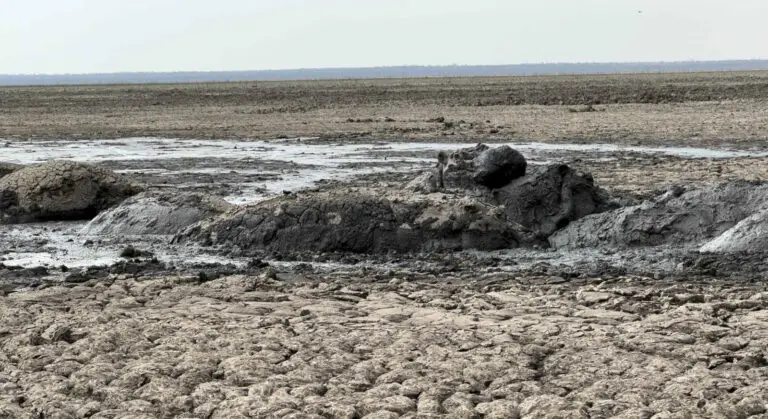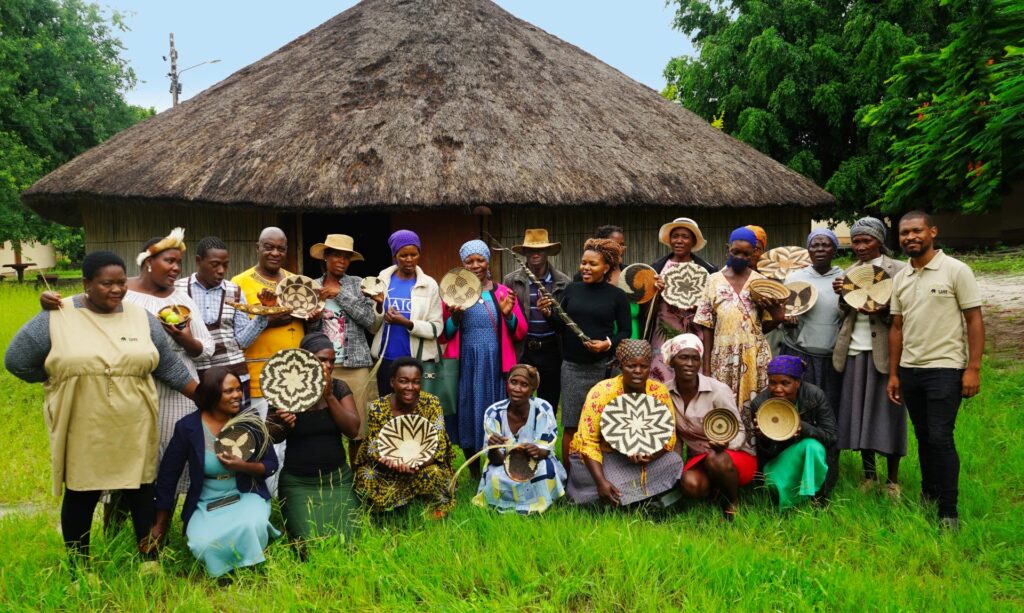
Group from the Okavango Delta
Baskets from the Okavango Delta – SAVE initiative supports Nxagara community
27.10.2023
Between the famous hippo pool Nxaichaa and a huge Mokolwane palm tree lies a village called Nxagara in the north of Botswana. Together with SAVE Wildlife Conservation Fund, a group of 25 women and men is spearheading an ancient tradition: basketry. The elderly women and men are collecting reeds of the Mokolwane trees to use for their crafting. However, the fresh sprouting reeds are left to grow and reproduce. Later on, the community uses the roots to dye the material and to weave unique, colorful baskets and products out of the reeds. This traditional basketry is so in tune with nature and culture that is an imperative for SAVE to support the community in furthering its endeavor in preserving it. That’s why we provide training in marketing, accounting and a storeroom for the products. In the rural areas of Nothern Botswana it is extremely hard to generate new jobs as there are little possibilites outside of the cities. Hence, the basketry is a beautiful way for the community to have an income by selling their products in the region.
“Working as Women Empowerment project officer is a joy and fulltime adventure”, says SAVE officer Tendae Andrew Kholi who is working with the community on-site. “You get to learn from highly energized and inspired elderly women and men who use their natural resources such as Mokolwane trees as alternatives to source income, basing on their indigenous knowledge to craft and weaver authentic Okavango baskets and crafts. They taught me how to preserve plants by encouraging me to cut only mature reeds and leave fresh reeds to grow, knowledge they acquired from their grandparents.”
The basketry is part of the SAVE Women Empowerment Project that aims to grow female businesses in Botswana but of course men are also welcome in this initiative.
As SAVE we are working united for conservation by working together with local communities. It is our goal to preserve nature and its unique wildlife holistically by providing education for conservation and to ssupport the empowerment and development of rural regions as these are often hit by human wildlife conflicts. We only work together with locals and establish solutions together as we believe that only through cooperation with the people who are affected, it is possible to work towards effective species conservation.
